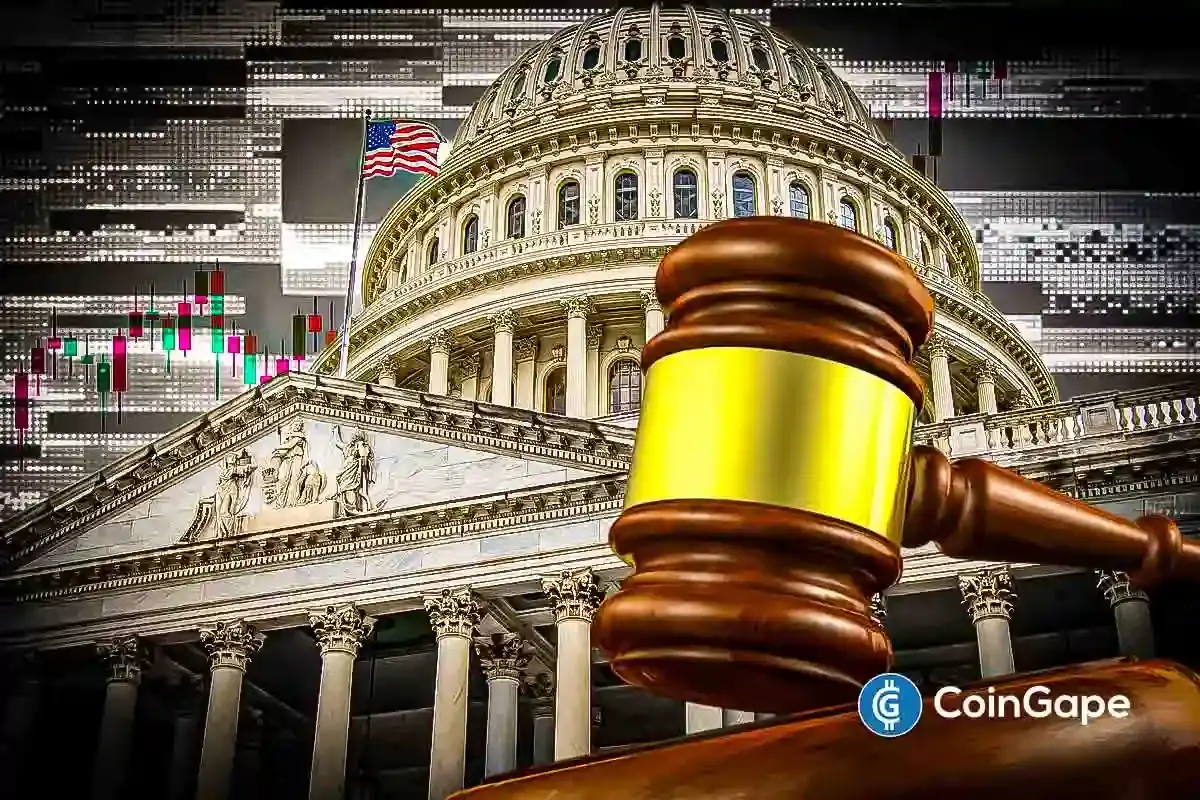Kazakhstan Blocks Coinbase Amid Crypto Compliance Clampdown

The Ministry of Culture and Information of the Republic of Kazakhstan has confirmed the blocking of major cryptocurrency exchange Coinbase. This comes as the Kazakh government takes a strict regulatory stance on the crypto sector, citing violations of local laws, according to a report by local media.
Meanwhile, the move to restrict access to these platforms, along with other international crypto exchanges, has raised questions about Kazakhstan’s approach to digital assets.
Kazakhstan Blocks Coinbase Amid Strict Crypto Stance
Kazakhstan, known for its robust cryptocurrency mining industry, has recently made headlines for its government’s efforts to block access to major cryptocurrency platforms. The Ministry of Culture and Information in Kazakhstan officially confirmed that it has restricted access to the Coinbase website.
Notably, the ban was instituted due to concerns about Coinbase violating Kazakhstan’s Law on Digital Assets, which was enacted in February 2023.
Meanwhile, this law prohibits the issuance and trading of digital currencies and cryptocurrency exchange operations without a national license. Notably, the Astana International Financial Center (AIFC), a special economic zone in Kazakhstan, is responsible for granting national licenses to operate.
Several platforms, including Binance, Bybit, CaspianEx, Biteeu, ATAIX, Upbit, and Xignal&MT, have obtained these licenses, making them eligible to operate within Kazakhstan.
Also Read: CEO Changpeng “CZ” Zhao Accuses Dr Doom Nouriel Roubini For Using Binance Logo
Foreign Brokers and Crypto Exchanges Impacted
Coinbase is not the only platform affected by these restrictions. The Ministry of Culture and Information also explained the reasons behind the blockage of Interactive Brokers and the New York Mercantile Exchange (NYMEX) websites. According to the report, they cited violations in their activities, including trading cryptocurrencies, which is contrary to Kazakhstan’s legal framework.
The Ministry of Information pointed out that Interactive Brokers had been included in the Cybernadzor system database by the Agency for Regulation and Development of the Financial Market (ARFRD). The agency identified signs of a “financial pyramid and other fraudulent transactions” in the company’s operations.
The NYMEX website was reportedly blocked because it allowed trading of cryptocurrency futures outside the jurisdiction of the AIFC, without obtaining a work permit from the Astana Financial Services Regulatory Committee (AFSA). Interestingly, after the initial ban, the websites of Interactive Brokers and NYMEX were unblocked following requests from the Financial Monitoring Agency. However, the reasons for this reversal were not disclosed.
These actions have not gone unnoticed. Kazakhstan’s local and foreign companies have expressed concerns, and some consider the blocking of these websites a mistake.
Meanwhile, financial analyst Andrey Chebotarev highlighted that foreign brokers and crypto exchanges were almost inaccessible from Kazakhstan, causing difficulties for local investors.
In addition, the government’s actions raise questions about Kazakhstan’s stance on cryptocurrencies and foreign financial services providers, as the country continues to navigate the evolving digital landscape. This recent crackdown has demonstrated the challenges and uncertainties facing the crypto industry in the region, prompting further discussion about the country’s regulatory approach.
Also Read: Elon Musk Says He’ll Look Into PlayStation And XBox Cutting X Integration
- CLARITY Act: Trump’s Crypto Adviser Says Stablecoin Yield Deal Is “Close” as March 1 Deadline Looms
- Trump Tariffs: U.S. To Impose 10% Global Tariff Following Supreme Court Ruling
- CryptoQuant Flags $54K Bitcoin Risk As Trump Considers Limited Strike On Iran
- Why Is Bitdeer Stock Price Dropping Today?
- Breaking: U.S. Supreme Court Strikes Down Trump Tariffs, BTC Price Rises
- Ethereum Price Rises After SCOTUS Ruling: Here’s Why a Drop to $1,500 is Possible
- Will Pi Network Price See a Surge After the Mainnet Launch Anniversary?
- Bitcoin and XRP Price Prediction As White House Sets March 1st Deadline to Advance Clarity Act
- Top 3 Price Predictions Feb 2026 for Solana, Bitcoin, Pi Network as Odds of Trump Attacking Iran Rise
- Cardano Price Prediction Feb 2026 as Coinbase Accepts ADA as Loan Collateral
- Ripple Prediction: Will Arizona XRP Reserve Boost Price?


















